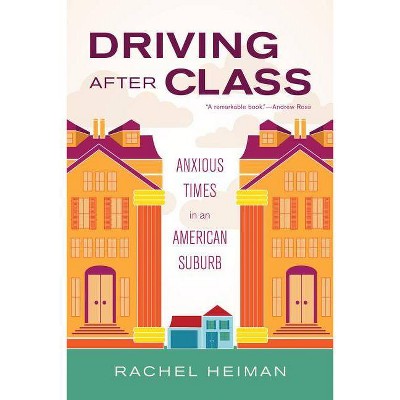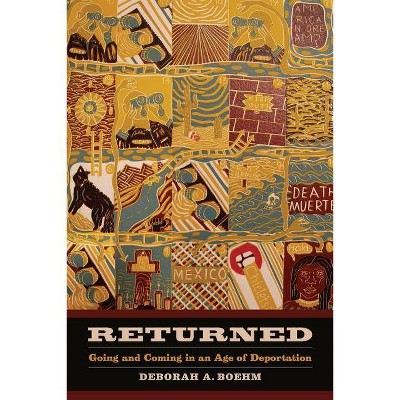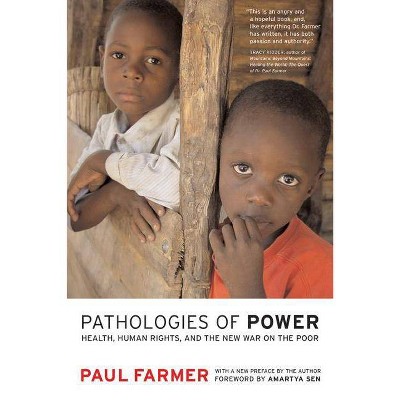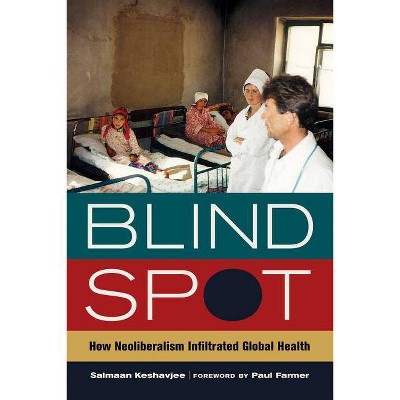Driving After Class, 31 - (California Public Anthropology) by Rachel Heiman (Paperback)

Similar Products
Products of same category from the store
AllProduct info
<p/><br></br><p><b> About the Book </b></p></br></br> "A paradoxical situation emerged in the late 1990s: the dramatic upscaling of the suburban American dream, even as the possibilities for achieving and maintaining it diminished. Driving After Class explores middle-class anxieties and suburban life during those years. Drawing on nineteen months of ethnographic research in a suburban New Jersey town as McMansions sprouted up next to subdivisions of moderately sized colonial-style homes and infrastructural essentials like schools and roads became overburdened, each chapter throws into relief subtle gradations within the middle class and among middle-class sensibilities, and brings to life the ways that people were reorienting themselves--both consciously and unconsciously--to the discursive and material displacement of postwar liberal approaches to middle-class life in favor of newly dominant neoliberal logics. The ethnographic moments illustrated in the book, drawn from fieldwork in people's homes, their town hall, and their SUVs, reveal the ways that efforts to appease feelings of insecurity--whether through place-making practices, childrearing strategies, or 'had-to-have' purchases--often made people (and their neighbors) feel and be less secure. The economics and cultural politics of the constellation of these ways of being, which I have termed 'rugged entitlement,' ended up steering many children, youth, and parents into ambivalence about the structuring and texture of their everyday lives: it is exhausting work to be strategically and persistently driving after class. But more often than not, unable to imagine the possibility of crafting another way of life, most curbed these unsettling doubts and resolutely fueled up for the ride"--Provided by publishe<p/><br></br><p><b> Book Synopsis </b></p></br></br>A paradoxical situation emerged at the turn of the twenty-first century: the dramatic upscaling of the suburban American dream even as the possibilities for achieving and maintaining it diminished. Having fled to the suburbs in search of affordable homes, open space, and better schools, city-raised parents found their modest homes eclipsed by McMansions, local schools and roads overburdened and underfunded, and their ability to keep up with the pressures of extravagant consumerism increasingly tenuous. How do class anxieties play out amid such disconcerting cultural, political, and economic changes? In this incisive ethnography set in a New Jersey suburb outside New York City, Rachel Heiman takes us into people's homes; their community meetings, where they debate security gates and school redistricting; and even their cars, to offer an intimate view of the tensions and uncertainties of being middle class at that time. <p/> With a gift for bringing to life the everyday workings of class in the lives of children, youth, and their parents, Heiman offers an illuminating look at the contemporary complexities of class rooted in racialized lives, hyperconsumption, and neoliberal citizenship. She argues convincingly that to understand our current economic situation we need to attend to the subtle but forceful formation of sensibilities, spaces, and habits that durably motivate people and shape their actions and outlooks. "Rugged entitlement" is Heiman's name for the middle class's sense of entitlement to a way of life that is increasingly untenable and that is accompanied by an anxious feeling that they must vigilantly pursue their own interests to maintain and further their class position. <i>Driving after Class</i> is a model of fine-grained ethnography that shows how families try to make sense of who they are and where they are going in a highly competitive and uncertain time.<p/><br></br><p><b> From the Back Cover </b></p></br></br>"Heiman was in the right time and place to document the helter-skelter demise of the American suburban middle class. Her remarkable book captures the panic attached to a lifestyle that was held aloft only by the updraft of cheap credit, pre-peak oil, and the richly embroidered fantasies of capitalist growth." --Andrew Ross, author of <i>Creditocracy and the Case for Debt Refusal</i> and<i> Bird on Fire: Lessons from the World's Least Sustainable City</i> <p/> "Beautifully written, exquisitely argued, at once bracing and sympathetic, <i>Driving after Class</i> tracks the trivial and reveals it to be anything but. In this nuanced ethnographic account of middle-class struggles over privilege and position, Heiman deftly draws out the symbolic meanings coiled in and driving everyday narratives and habits of desire around things such as vehicles, clothing, home décor, embodiment, and zoning. In so doing she exposes the striations of neoliberal capitalism that score middle class (in)securities of class position, anxieties about the future, and racialized fantasies of difference."--Cindi Katz, author of <i>Growing Up Global: Economic Restructuring and Children's Everyday Lives</i> <p/> "Heiman combines an anthropologist's insights and a novelist's eye for detail to produce this unique ethnography of the world of the McMansions. From SUVs and gated driveways to zoning maps and school districts, she brilliantly analyzes the anxieties behind what she calls 'rugged entitlement, ' the fragile claims to status and security in an upscale suburb."--Robert Fishman, author of<i> Bourgeois Utopias: The Rise and Fall of Suburbia</i><p/><br></br><p><b> Review Quotes </b></p></br></br><br>"Clearly written and argued, this ethnography explores what it was like to be a middle-class American in the 1990s."-- "Anthropologica"<br><br>"Heiman addresses two crucial yet under-theorized conversations - the changing nature of the American suburb and American social class - through a compelling snapshot of everyday life and the subjectivities of banal activities, conversations, signs, and symbols. . . . <i>Driving After Class</i> is not only a fun read, but also an important one."-- "City & Society"<br><br>"Heiman adopts a unique approach: she seeks to unearth the middle-class subjectivities produced out of, and fueling, these competing trends."-- "American Sociological Association"<br><br>"Historically informed and attentive to local specificity, Heiman's book stands as a valuable exemplar of what native ethnography can look like and illustrates the value of turning the anthropological lens on a population often regarded as normative or against which others are created."-- "North American Dialogue"<br><br>"One of the strengths of Driving after Class is Heiman's development of the vivid term ''rugged entitlement.'' In many ways, rugged entitlement is the classed extension of the ''American spirit, '' a structure of feeling that is pervasive in middle-class suburbs like Danboro."-- "Contemporary Sociology"<br><br>"There is much to like about this book. What Heiman does particularly well is write with compassion and respect while maintaining her critical voice... Heiman takes the worries of the people of Danboro seriously and shows us their world as they see it. The book is better for it."-- "American Journal of Sociology"<br><br>"We want these voices to matter because Heiman has engaged the most recent iteration of a central debate in U.S. history"-- "Journal of the American Ethnological Society"<br><br>"Rachel Heiman displays great talent for squeezing ingenious and often compelling meanings out of everyday events. This, of course, is precisely the stuff of anthropology, the study of the ordinary.... Heiman has done signal service by showing us how neoliberal sensibilities are inculcated and enacted in the banalities of daily life, an analysis that can give us clues about where to work for change."-- "American Ethnologist" (11/16/2015 12:00:00 AM)<br><p/><br></br><p><b> About the Author </b></p></br></br><b>Rachel Heiman</b> is Associate Professor of Anthropology at The New School.
Price History
Price Archive shows prices from various stores, lets you see history and find the cheapest. There is no actual sale on the website. For all support, inquiry and suggestion messagescommunication@pricearchive.us




















